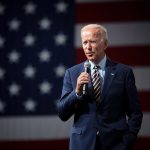
Abortion is not a solution for Native women
By Elizabeth Terrill
Tomorrow, hundreds of Native people from the United States and Canada will be joining hundreds of thousands of marchers in Washington, D.C., for the annual March for Life.
We will be marching because life is sacred from the very moment of conception. As a Native American woman, I know this to be true at a fundamental level. It has taken centuries for our Native peoples to be afforded the human rights that all people deserve by their very nature.
Precisely because of our history of being discarded and disdained, we have an obligation to stand for those who are today being denied the rights that we have fought so hard to obtain.
Today, unborn Native Americans are the most vulnerable among us and they are under assault from many sides. By our culture we know the importance of our children. Our children are our future, and our children are the heart and soul of our families, clans, and tribes.
I have lived my whole life surrounded by the proud tribes of the Southwest and I am privileged to serve our communities here in New Mexico. As a mental health therapist who specializes in children and families, I see the many heart-wrenching situations that these children and families experience all too frequently. There is abuse, neglect, loss, and other traumas that deeply affect our Native American people.
Our people have experienced centuries of trauma. Our lands were taken. Treaties with us were violated. We were placed in boarding schools where our language and culture were brought to the brink of extinction. These traumas beget more traumas including a crisis of sexual abuse among our people and until recently the largely ignored issue of missing and murdered indigenous women.
Abortion is not a solution for Native women. It is part of the problem. It is another one of the lies that is told to keep our people traumatized and beaten down. I have worked with many women who have had abortions and that trauma only further injures their mental and physical health.
In my job, I meet many people at the lowest point of their lives and help them through deep pain. I have worked with many of the so called “unwanted children” who come from abusive or broken homes and I cannot imagine thinking that killing them was the solution. But that is precisely what abortion proposes: not to heal lives, but to eliminate them, to take from us our children, our future – as some have sought to take our past as well.
We as a people are strong and even stronger when we preserve our families, when we embrace our children, and when we welcome life into this world and help it overcome the inevitable obstacles that will arise.
In my tribe, the Osage people (the Wah-zha-zhe) have a strong tradition of family and of protecting the unborn. In the preamble to our tribal constitution we “hold sacred: Justice, Fairness, Compassion, Respect for and Protection of Child, Elder, All Fellow Beings, and Self.” This is “in order to preserve and perpetuate a full and abundant Osage way of life that benefits all Osages, living and as yet unborn.”
We as a people do not see our people as divided by an arbitrary barrier such as birth. All are sacred. At all points in time and at all points in human development, from conception to natural death. The Navajo have a similar tradition. In fact, the Navajo Nation Supreme Court has ruled that “We take judicial notice that the child, even the unborn child, occupies a space in Navajo culture that can best be described as holy or sacred, although neither of these words convey the child’s status accurately. The child is awę́ę́ t’áá’íídą́ą́’hiną́, alive at conception, and develops perfectly in the care of the mother (Navajo Nation Supreme Court, EXC, Inc. v. Kayenta Dist. Court, No. SC-CV-07-10 2010).
I have seen many grandmothers, aunts, uncles, and cousins that have brought children into their homes to preserve the sacredness of life: all life, from the very beginning to the very end and everything in between.
My husband and I live this creed not just in my work as a therapist among the Navajo and other Native peoples, but also in our family life. We are foster parents and an Indian Child Welfare Act placement. To date we have had 17 foster children placed in our home over the last three years, some short term and some long-term. They are all a part of our family and the world is far better off with these children.
Many of the crimes against our people have involved the taking of our children. It sickens and saddens me to know that some people still believe that children like the amazing young men and women we have fostered would be better off had they been aborted.
We can be part of the way forward by standing for the protection of all children, born and unborn. This is why my entire family will be heading to the March for Life in Washington. This is why we will be joining our Native brothers and sisters in a stand for those who cannot stand for themselves. This is why we March for Life.
Elizabeth Terrill is a therapist and foster parent.

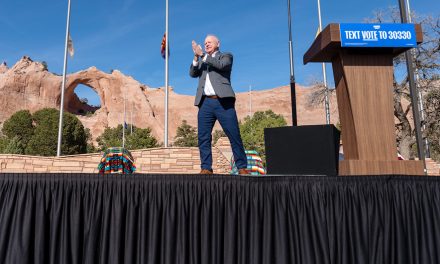
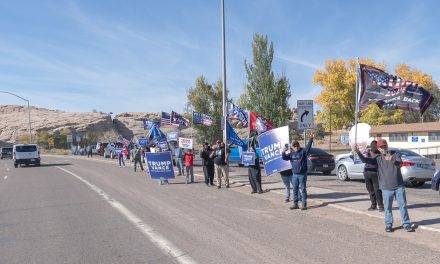
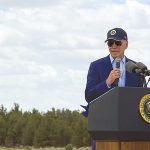

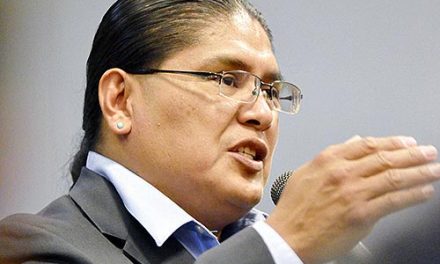
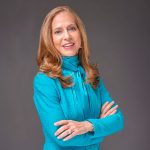

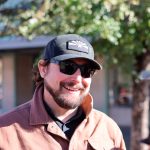

 Highway 264,
Highway 264, I-40, WB @ Winslow
I-40, WB @ Winslow